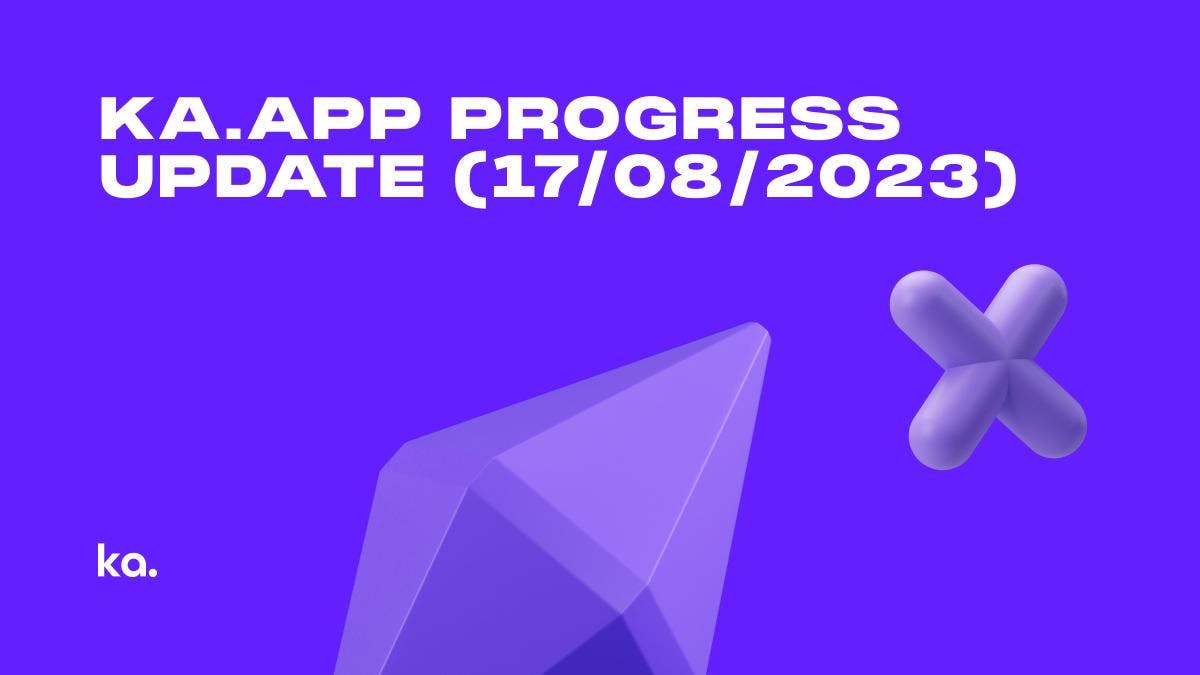Crypto transaction fees are a huge factor in making the most of your digital transactions, whether you're making payments, converting tokens, moving funds to another wallet, or engaging in decentralized finance (DeFi).
Network demand, consensus mechanism, and transaction complexity are the main factors affecting crypto fees, but the platform you use when making those transactions can also influence overall costs.
In this article, we’ll learn more about crypto transaction fees, compare the fees for some of the most popular cryptocurrencies in the market, and how using Ka.app can help you save on costs, especially for sending crypto.
What Are Crypto Transaction Fees?
Simply put, crypto transaction fees are the costs you pay to complete transactions on a blockchain network.
10 Common Types of Crypto Transaction Fees
1. Network Fees
Network fees, also known as gas fees (on Ethereum), are charges paid to miners or validators to process and confirm transactions on a blockchain. Fees vary based on network demand, with popular networks like Ethereum often having higher fees than less congested ones like Solana.
2. Exchange Fees
Exchanges typically charge fees for buying, selling, or transferring crypto. These vary by platform and can be either a fixed amount or a percentage of the transaction. Exchange fees might include deposit, withdrawal, and trading fees.
3. Withdrawal Fees
When moving crypto from an exchange to an external wallet, a withdrawal fee may apply. This covers the cost of transferring funds from the exchange to the blockchain network. Each exchange sets its own withdrawal fees, which are generally higher than standard network fees.
4. Trading Fees
Trading fees are applied by exchanges when you trade (buy or sell) cryptocurrencies. These fees are typically calculated as a percentage of the transaction and can vary based on trading volume, account level, and whether you’re a market maker or taker.
5. Conversion Fees
Conversion fees apply when you convert one cryptocurrency to another within a wallet or exchange. These fees cover the processing of the trade and may vary depending on the currency pairs being exchanged.
6. Deposit Fees
Some exchanges charge deposit fees when you transfer crypto or fiat money into your account. While many platforms offer free crypto deposits, traditional currency deposits (bank transfers, credit cards) may incur fees depending on the payment method.
7. Token Approval Fees
For transactions on certain decentralized finance (DeFi) platforms, you may need to approve a token before it’s used in a transaction, which incurs a small fee. This is a one-time cost that permits smart contracts to access specific tokens.
8. Smart Contract Fees
When interacting with DeFi protocols, NFTs, or dApps on blockchains like Ethereum, additional smart contract fees may apply. These cover the costs of running complex code within the blockchain, which requires higher processing power.
9. Staking Fees
Some platforms charge a staking fee for locking up crypto in a network to earn rewards. These fees are often taken as a small percentage of staking rewards, helping cover validator or platform costs.
10. Service Fees
Certain crypto services, such as custody or crypto loans, may charge service fees. These are fees for using specialized services, often a percentage of the asset value held or loaned on the platform.
3 Main Factors Influencing General Crypto Fees
1. Network Demand
High demand can lead to increased fees as users compete to have their transactions included in the next block.
2. Consensus Mechanism
PoW networks like Bitcoin and Ethereum are usually costlier than PoS or Proof of Authority (PoA) blockchains.
3. Transaction Complexity
Some transactions, such as those involving smart contracts, are more complex and can have higher fees.
Comparing Transaction Fees Across Popular Cryptocurrencies
The table below compares transaction fees among some of the most popular cryptocurrencies in the market. Note that fees may fluctuate over time due to changing network conditions.

Which Crypto Has the Lowest Fees?
Based on average transaction fees, XLM and XRP have the lowest costs, typically less than $0.001 per transaction. These low fees make them excellent choices for high-frequency transactions and cross-border payments. SOL also offers competitive low fees, particularly beneficial for users interested in decentralized finance and NFTs. Meanwhile, KASTA doesn’t charge transaction fees when sent and received on Ka.app.
Save on Crypto Transaction Fees with Ka.app
Ka.app allows you to send currencies for free (yes, not just KASTA) to other Ka.app users. As of writing, these also include BTC, ETH, ADA, USDT, USDC, BNB, SOL, POL, DOT, and even euros (EUR). Converting crypto is also affordable with service fees as low as 0.376% of the transaction amount.
Meanwhile, the fees for buying crypto varies depending on what payment method you use.
FAQ
Is it cheaper to transfer BTC or ETH?
It’s generally cheaper to transfer BTC than ETH, especially during peak times. Ethereum’s gas fees tend to be higher due to network congestion and demand for DeFi and NFT transactions.
How to pay lower crypto fees?
To pay lower fees, try using blockchains with low transaction costs, like Solana or Polygon. You can also make transfers during off-peak hours when network demand and fees are lower.
Why are BTC fees so high?
BTC fees rise when demand is high and network space is limited. Since BTC blocks have a fixed size, competition for block space increases fees, especially during peak trading times.
Who keeps BTC fees?
BTC transaction fees go to the miners who validate transactions and add them to the blockchain. These fees are part of their incentive for maintaining network security.
Which crypto network has the lowest fees?
As mentioned above, Stellar, Ripple, and Solana are known for having some of the lowest transaction fees, often costing fractions of a cent per transaction.








